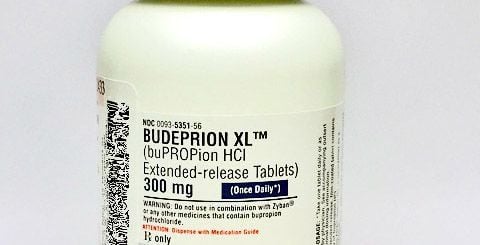This is an automatically translated article.
While psychological trauma can cause a scary and debilitating reaction, it can also be a catalyst for positive changes in some cases. Events can even stimulate growth, strength, and resilience if you know how to turn adversity into your advantage. It is important to take the time to heal properly.
1. Growing up after the event
Post-traumatic stress disorder is when a person who has suffered from post-traumatic stress disorder now knows how to find meaning from his or her experiences to live life in a different, more positive way. .
In a nutshell, the concept of post-event maturity means that traumatic, stressful, and adverse events happen to people that have the potential to produce positive benefits. These events can be serious illness, bereavement, conflict at war or sexual assault, etc. These are often experiences that can transform an individual's life and later adulthood. The event is the positive result of enduring the psychological struggle that follows. Traumatic events can be a catalyst for positive growth, helping you manage symptoms of post-traumatic stress.
For example, many people are starting to learn about how to heal psychological trauma after going through a pandemic. A recent study found that 88% of 385 survey participants said they have experienced positive effects from challenging pandemic circumstances, such as homeschooling, loss of income. and health concerns.
In particular, respondents noted a positive improvement in family relationships and reported that they value life more highly. Others say they have experienced mental maturity after the pandemic and say their mental health has improved.
2. Factors affecting psychology after the event
Why are some people able to grow after an event while others can't? Experts say the following factors play a major role:
Get help, support Studies show that people have supportive family and supportive friends, as well as seek mental health care. Good god will have more chance to recover.
Positive Personality Traits Openness makes them boldly reconsider their lives and accept change. While extroverts are more likely to react positively and start looking for ways to connect socially. Positive personality traits - such as being optimistic and always looking to the future, can also contribute to psychological wound healing.
See the event as an experience When a person who has been through an event can see it as just an experience in life, they will be healed of their soul wounds and learn valuable lessons from the experience. Otherwise, they may remain in a state of trauma and grief.

Xem biến cố như một trải nghiệm có thể giúp chữa lành vết thương
Experts say anyone can use traumatic experiences from an event to boost morale and deepen their appreciation of life. They recommend seeking professional mental health services. Access to science-based wound healing approaches that can relieve psychological symptoms and change lives. These methods are effective for many types of trauma, including major/complex stress disorder, grief, anxiety, and trauma-related depression.
It should be noted that events affect everyone differently, do not suppress or ignore your own suffering to stubbornly pursue optimism. As a human being, you cannot express your negative emotions in a healthy and positive way.
3. How to heal psychological wounds?
If you've been through a trauma, you can take steps to become more mature after your traumatic experience. These steps include:
Reflecting on your own experiences and feelings As a first step, experts suggest working through your feelings in writing. Reflecting on what you've been through and how you've reacted, especially writing it down, helps you become more aware of how to heal and can cultivate a sense of gratitude and appreciation for meaning in life. When we are fully expressed, we become open and can begin to see how rich and interesting life is.
Increase community connections Experts believe that seeking support from people you trust can also help. The world community has come together to support each other during the pandemic, strengthen relationships and help the vulnerable. Many say this has made them feel more appreciative of others and feel part of something bigger. First, seek mental health support and reach out to those close to you.
Seeking mental health support It is important to note that some cases cannot heal on their own, so it is important to seek help from a qualified professional. degree.

Chữa lành vết thương tâm hồn bằng cách tăng kết nối cộng đồng
4. When to get medical help?
Symptoms of trauma include:
Stay alert, stay on high alert; There are strange thoughts intruding; Having nightmares ; Frequent recall of memories; Increased use of alcohol or drugs ; Sleep disorders . If you or a loved one is experiencing the above symptoms, experts recommend taking the following steps:
Talk to your doctor or call mental health services; Talk to a trusted friend or family member about what you are experiencing; Consider journaling about your experiences. The very process of writing everything down from A - Z can really help; Instead of pushing your uncomfortable thoughts and feelings away or deliberately distracting yourself, you can learn to tolerate them. Using techniques like three to four deep breaths can really increase your ability to process troubling thoughts; Learn about psychotherapy. If you or a loved one is in crisis, is contemplating suicide or self-harm, please seek immediate assistance by calling the hotline number. While waiting for help to arrive, stay by their side and remove any weapons or substances that could cause harm. If you're not together, keep talking to them until professional help arrives.
Please dial HOTLINE for more information or register for an appointment HERE. Download MyVinmec app to make appointments faster and to manage your bookings easily.
References: healthline.com, apa.org












